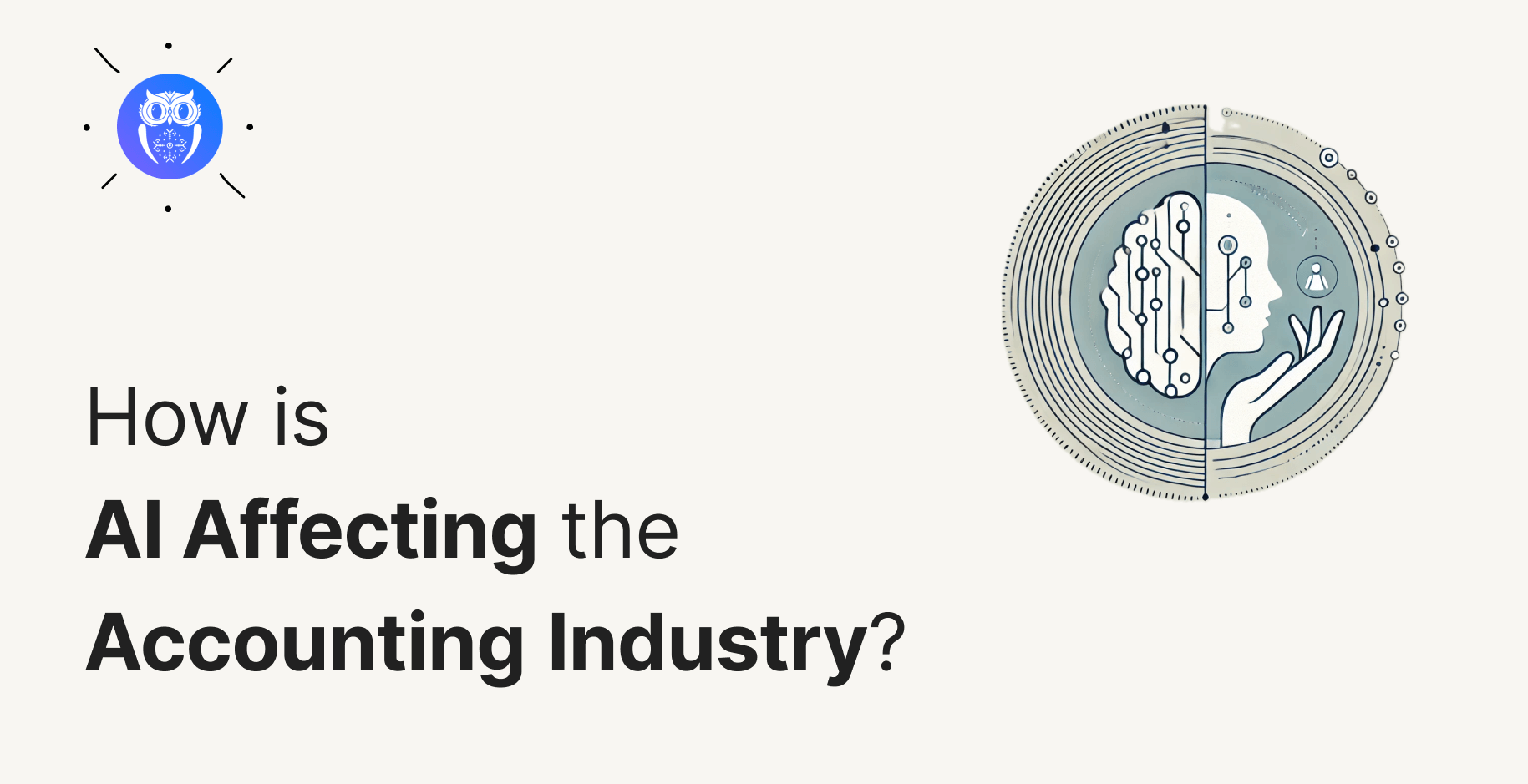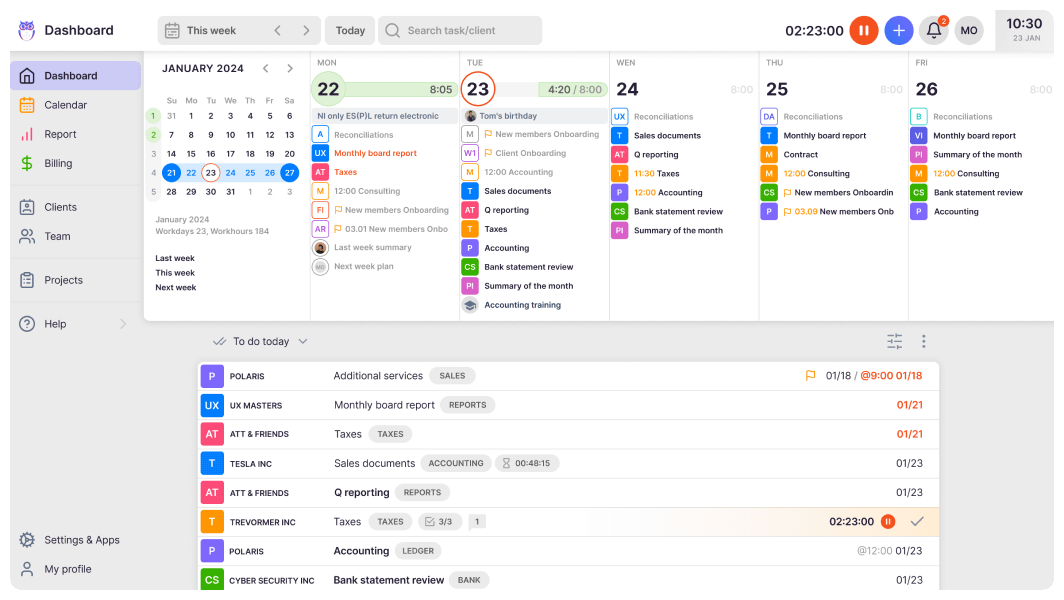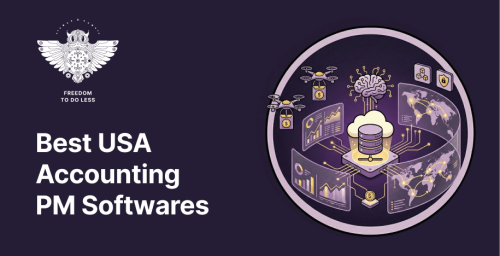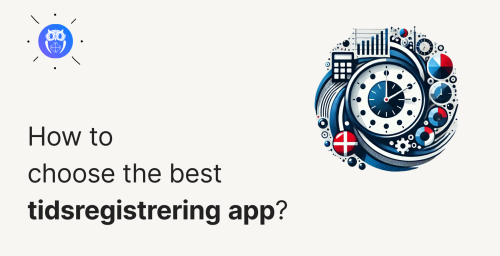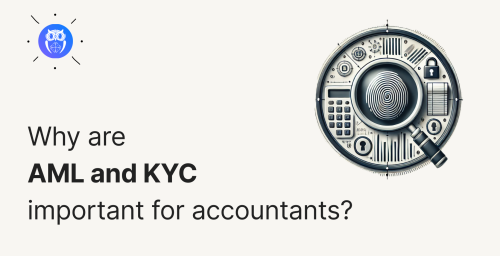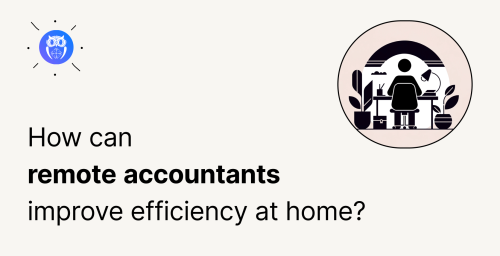According to the 2020 World Economic Forum Future of Jobs report, the third-fastest-decreasing jobs in demand are accountants, bookkeepers, and payroll clerks. Will accountants become extinct because AI accounting is the future? Not if we can help it.
With the increasing use of artificial intelligence, several professions are at risk of becoming irrelevant in the next few years. However, while AI is transforming the accounting profession, it is more about evolution than extinction.
How Have Accounting Job Roles Evolved?
We touched on the topic of the need for upskilling and job automation. How have job titles changed, and how have our roles evolved?
Business owners and accounting practice managers often ask how they can support their bookkeepers in light of these changes. We suggest first providing your employees with proper work-life balance. Then integrate them with these artificial intelligence technological advancements.
Financial success isn’t just about numbers—it’s about having a clear, tailored strategy. “It’s important to offer advice that speaks to each business’s unique situation,” says Trevor Randall of Randall Wealth Group. “By understanding their goals and challenges, we can guide companies toward smarter financial decisions that help them grow and succeed long term.” The right financial guidance can make all the difference in ensuring lasting stability and growth.
Make sure they understand that human expertise remains the core of financial services.
The Rise in Accounting Technology
The most significant technological development accountants have seen in the last decade has been the emergence of the cloud. We can store documents, data, and communication – everything in the cloud and it will be accessible to everyone at all times. Storing data in the cloud has simplified remote work in various industries.
AI accounting is not just a concept of the future—it is already reshaping the industry.
Thanks to the cloud, we have seen the rise of artificial intelligence, big data analytics, machine learning, robotic process automation, and various other digital accounting technologies, allowing us to automate our workflows more.
The Role of AI in Financial Services
According to the WEF report, 17% of all surveyed companies see cloud computing as the prime technology to adopt by 2025. These patterns of technological adoption vary according to industry. Artificial intelligence is finding the broadest adaptation among several sectors, most notably financial services.
The future of accounting is not just about technology, but it is being driven by it.
These new technologies are set to drive future growth across finance and accounting, increasing demand for new job roles and skill sets that require a blend of technological savvy and traditional accounting expertise.
Such positive effects do come with a caveat, though – technological adoption will impact some workers by displacing some tasks performed by humans with machines and automation.
Why You Shouldn’t Be Afraid of the Technological Evolution
Although technological evolution sounds alarming, it should not.
When great technology and a dynamic and robust workforce combine, they underpin what it takes to be a successful business in today’s world.
We’re getting a ton of usefulness from AI tools like those for voice cloning that generate training materials and customer service responses, or AI-driven analytics platforms for real-time insights that make operations faster and more efficient than ever. AI is here to help us, not replace us.
We’re getting a ton of usefulness from AI tools like voice cloning for creating training materials and customer service responses, images generated by AI for marketing and content personalization, and AI-driven analytics platforms for real-time insights. These innovations are making operations faster and more efficient than ever. AI is here to help us, not replace us.
Accounting Firms Must Evolve to Keep Up with Accounting AI
It is evident that technology is changing business accounting. You only have to acknowledge the growth in cloud accounting software providers. It’s not important to incorporate AI accounting into your processes today.
Companies like Xero and QuickBooks have now made their software accessible from anywhere on any internet-connected device.
Adapting to Technological Change
What they do better than accounting platforms of yonder is that they have become more easily understood. So, resistant time tracking users can quickly become acquainted and view cloud software as useful rather than feared. Additionally, AI process mining has emerged as a critical tool for companies aiming to streamline workflows, uncover inefficiencies, and optimize processes, further reducing the manual burden on financial professionals.
What scares those in their current professions is the media’s coverage of robots, AI, and machine learning, which claims the prophetic extinction of accountants.
Combined with the WEF report that the third-fastest jobs decreasing in demand are accountants, bookkeepers and payroll clerks, you can easily understand why.
The Human Element in Accounting
However, for all the hyperbole about automation and cloud technology, accounting professionals can still offer so much more and remain relevant.
Accountants are trained professionals. They ensure tasks are done correctly, advise clients, and reassure them that they’re not making errors that could lead to a large tax bill, fines, or even worse.
No matter how much automation is involved, there will always be a human element overseeing how a business is run and what practices its clients can adopt to improve.
The Growing Demand for Advisory Services
Adding this value to accounting client services has become much more appreciated. Billing time for accountants is not only ensuring company compliance is met. Today’s accountants are not just ensuring compliance; they are increasingly focusing on advisory services, which have become more profitable and are a critical growth area for accounting practices.
Now, more billing is charged for advisory work that has become far more profitable and easier to grow an accounting practice.
The same applies to accountants like solicitors and lawyers, where interpretation is required to clarify legalities.
Not only knowing about tax laws but becoming experts on newly arrived practices like Making Tax Digital or the several UK government business loan schemes that have cropped up in the wake of the coronavirus pandemic.
Far from being irrelevant, accountants must shift their emphasis from competing tasks to embracing more soft skills to evolve their job roles.
What Are Soft Skills and Why Do They Matter?
Soft skills are related to how employees work, including how they interact with customers and colleagues and how they approach situations and solve them.
Unlike ‘hard skills‘ that require learning and years of study, soft skills are harder to teach traditionally as there is little room to measure what constitutes success.
The Importance of Soft Skills in Accounting
Employers search for those with soft skills because nearly every job requires some interaction with a colleague and customer and will require thinking more critically and dynamically.
Soft skills are vital in customer-facing jobs. These employees are in direct contact with clients. They require several skills, including the ability to listen, analyse, and engage with clients to offer better service than their competitors.
Because of this, showcasing interpersonal skills is very important when pursuing a career in the accounting industry. A resume maker like Rezi can be a valuable tool in this process, helping job seekers craft a professional resume that highlights soft skills alongside technical qualifications.
Even the same WEF report notes that soft skills are rising in demand, with the top 5 are:
- critical thinking and analysis
- problem-solving
- self-management
- working with people
- communication
And when you think about it, it makes complete sense. Even by 2025, machines and robots will not be able yet to do the following top skills required by humans:
- Analytical thinking and innovation
- Active learning and learning strategies
- Complex problem-solving
- Critical thinking and analysis
- Creativity, originality and initiative
The Accounting Firm of the Future Hasn’t Adopted AI Accounting
Although automation is critical for a firm’s profitability, it should not be the primary driver.
Lessons from ScaleFactor’s Shutdown
In June 2020, the fintech startup ScaleFactor, which raised $100 Million and was to provide more automated accounting services, had to shut down.
ScaleFactor’s mission was to remove business owners’ financial clarity challenges. They wished to empower business owners to run their financial back offices without a regular accounting professional.
ScaleFactor’s CEO had a painful admission for those seeking the ‘automation-only’ route:
“But our growth was not without growing pains and important learnings. The most important was that technology alone is not enough to make business owners feel financially confident. Customers want a combination of software and human support within an overall solution. Human support wants to be the hero in the customer relationship.”
Accountancy is an evolving discipline, then.
The Need for Human-Centric Accounting
Businesses are seeking a better relationship with their accountants. They wish to understand more and prefer to collaborate with them rather than be abandoned by them.
That does not mean that accountants should rest on their laurels, though.
Typically, accountants generated value by ensuring all business finances were accurate and compliant when submitting their accounts.
According to Draven McConville, a tech entrepreneur and investor, “AI in accounting isn’t about replacing humans, but it is about enhancing their capabilities. The combination of AI’s scale and efficiency with human insight and relationship-building is what can create real value for clients. But there are still real issues with hallucinations. Humans will be part of the loop for some time to come.
Now, there are new client metrics that matter. The same data can be utilised to determine customer satisfaction, churn rates, lifetime value of a customer, time-tracking tasks and other business-critical KPIs, all measurable in a modern business intelligence dashboard.
These client metrics require critical thinking and innovative strategies, which are part of the modern accountant’s soft skills repertoire.
How to Avoid Accounting Extinction and AI Accounting Taking Over?
Technology alone is not enough to make businesses feel financially confident. Customers want a combination of human support and software within a solution.
Still, business owners need a technology champion—someone who understands the technology stack and how to integrate it.
By understanding what data a business captures, accountants can better decipher concerns and identify business opportunities.
Combining excellent software skills, business-critical thinking, and years of accounting experience will make accountancy an invaluable profession for years to come.
Conclusion: The Future of Accounting is About Transformation, Not Extinction
Harnessing technology and automation tools like Uku while keeping the human element at the core of client services will add more value (and thus more profit) to accounting services.
The future of accounting is not about becoming extinct but about transformation.
Thank you to Ryan Lazanis at FutureFirm for his assessment and input regarding the future of accounting. You can hear his thoughts (and inspiration behind this article) here.





